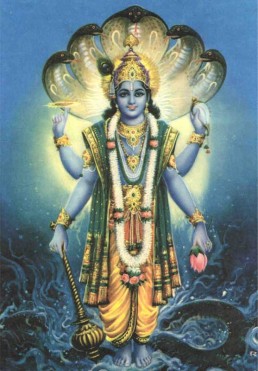It is true everywhere that a common man, though observing an object does not fully and correctly understand it. The better understanding of things is always reserved for the man of knowledge.
Everybody can read a great piece of literature, but a man of letters alone can come to comprehend and enjoy fully the vision expressed in and through the artistic design of the piece.
Only a jeweller can really estimate the quality and worth of a jewel, even though all can look at it.
Everyone can hear music, but only a musician can judge and experience the subtle beauties in a masterly recital.
Similarly, every one of us, so long as life resides in us, can perceive, feel and think, and yet, it is only the “wise” man who can come to recognise and live the Infinite Essence of Life Itself.
The Infinite Self is at all times present and never is there a time when It is not. When LEAVING the body, the subtle-body is vitalised by the presence of the Spirit. While the body is EXISTING, the Self is illuminating all experiences. While ENJOYING the pleasures of life, it is the Light of Consciousness that illumines for us all our mental experiences and our intellectual judgements. At moments, our entire mental climate changes from peaceful calmness (Sattwa) to riotous agitations (Rajas), or sinks into a dull inertia (Tamas), and all these moments, whatever be the nature of the climate within, are experienced only by the Light of Consciousness. And yet the unintelligent one perceives not this Conscious Knowledge that is constantly making him aware of his moment-to-moment experiences.
An average man is so much preoccupied with the details of experiences that, he, clinging to his desires for enjoying the outer beauty of things and situations, comes to overlook and fails to recognise the steady Light of Consciousness in him, in the presence of which alone can any experience be ever possible. Those who have got the necessary detachment from the minor details of the outer field-of-experience alone come to recognise and live the joys of the Pure Self — the Subject.
This special vision available to the man-of-Perfection is called the ‘EYE-OF-WISDOM’ in the stanza. This is not any special inner organ as such; it only represents an extra faculty that develops in the spiritual seeker, with which he comes to perceive the deeper significances and subtler suggestions in the superficially chaotic play of plurality. Those who do not have this intuitive perception necessarily fail to have this vision of the play of the Immortal Divine in and through the day-to-day activities and happenings. The same idea is more artistically stressed by Sri Shankara elsewhere. This ‘EYE-OF-KNOWLEDGE’ cannot be developed unless the disciplines of Self-perfection are properly practised. The subjective technique of self-integration (Yoga) can be successfully brought about only when complete integration of personality at the outer levels has taken place.
A FEW ONLY ULTIMATELY COME TO EXPERIENCE THIS SELF, WHILE OTHERS, EVEN THOUGH STRIVING, FAIL TO HAVE THIS REALISATION. WHY?

